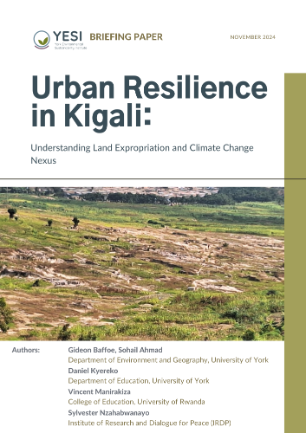
Towards Urban Resilience in Kigali
A Knowledge Exchange Initiative on Sustainable Development in Kigali
Aims and Objectives
Land expropriation – the compulsory acquisition of land by governments for public interest – continues to be a major developmental challenge in Kigali. Although a major factor in Kigali’s rapid physical transformation, the exercise comes with untold hardships, including livelihood disruption and loss of physical assets. The process also exacerbates climate impacts by exposing affected and displaced households to the harsh weather conditions in peri-urban areas and informal settlements. This proposed knowledge exchange (KE) project seeks to foster sustainable urban development in Kigali by addressing the intersection of land expropriation and climate change impacts. Through these knowledge exchange activities, we aim to empower local stakeholders, including communities, policymakers, and professionals, to integrate climate-resilient strategies into urban planning and development processes to enhance urban resilience in Kigali.
By addressing the challenges posed by land expropriation and climate change, we aim to contribute to the resilience of urban ecosystems and improve the environmental and health outcomes for the local population in Kigali. The objective is in three folds:
- To organize workshops and awareness sessions to educate local communities, policymakers, and professionals about the intersection of land expropriation and climate change.
- To empower communities to actively participate in decision-making processes in the wake of rapid urban development.
- To foster research collaboration between the University of York, Institute of Research and Dialogue for Peace (IRDP) and local researchers on the intersection of land expropriation and climate change impacts in Kigali.
Project Outputs
Knowledge Exchange Workshop in Kigali
YESI Knowledge Exchange Fellows (Gideon Baffoe, and Sohail Ahmad of Environment and Geography Department, and Daniel Kyereko, Education) together with the Institute of Research and Dialogue for Peace (IRDP), organised a workshop on ‘Expropriation and climate change’ on May 29, 2024, in Kigali.
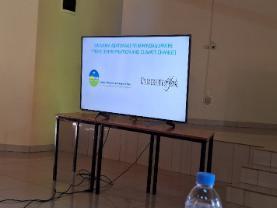
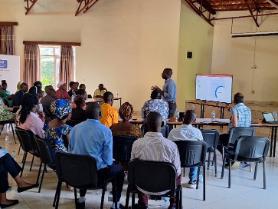
The workshop brought together diverse stakeholders, including policymakers (Kigali City Office), academia (University of Rwanda), civil society groups (LegalAid, CLADHO), and community members. The workshop aimed to raise critical awareness about the intersection of land expropriation and climate change in Kigali. Through the dialogue, stakeholders were conscientize on the need to foster sustainable urban development by integrating climate-resilient strategies into urban planning and development processes to enhance urban resilience in Kigali.
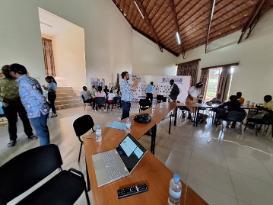
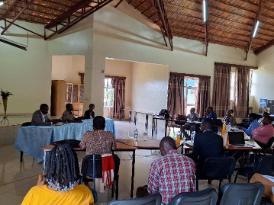
The central questions that guided the workshop are as follows:
- What are the challenges of land expropriation in Kigali?
- What specific climate change impacts are exacerbating the challenges of land expropriation in Kigali?
- How can we effectively balance the need for urban development with the protection of land rights and community livelihoods in the context of rapid urbanization and expropriation?
- What strategies can be employed to ensure the long-term sustainability and scalability of community empowerment initiatives aimed at raising awareness about climate impacts linked to land expropriation?
- How can partnerships between academia, local governments, civil society, and communities be strengthened to foster collaborative approaches to addressing the nexus between urbanization, expropriation, and climate change?
The second part of the event involved a team tour of selected expropriated sites and resettlement areas. This was an opportunity for the stakeholders to observe how the intersection of climate change and expropriation is shaping the living conditions of the people.
-274x205.jpg)
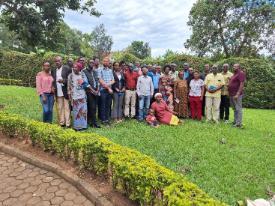
The event was covered by the local media, including the New Times – the largest news outlet in Rwanda. This is the link to the media coverage of the event. The key findings will be published in a policy brief soon.
Principal Investigator
Gideon Baffoe, Department of Environment and Geography
Co-Investigators
Sohail Ahmad - Department of Environment and Geography
Daniel Kyereko - Dept of Education
